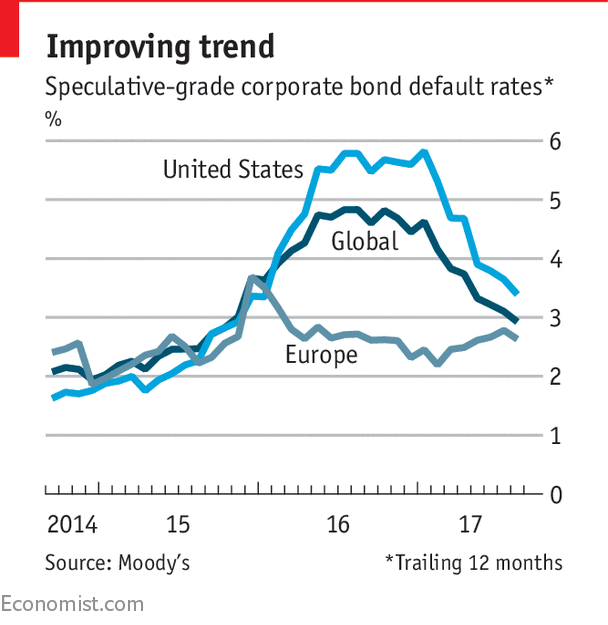THE stockmarket’s positive mood has managed to survive the tensions over North Korea’s nuclear programme. In part, this is because investors believe that global economic growth and corporate profits will continue to do well.
One reassuring signal is from the corporate bond market. The global default rate on speculative (junk) bonds has been dropping; fewer companies are going bust (see chart).
-
A positive sign from the bond market
-
An explosion on the London Underground is treated as terrorism
-
Why Macau is less demanding of democracy than Hong Kong
-
America’s Catholic bishops take on Donald Trump
-
The Gates Foundation is worried about the world’s wellbeing
-
Retail sales, producer prices, wages and exchange rates

This is the first time the default rate has dropped below 3% since October 2015 when a sudden fall in the oil price caused cashflow problems for the energy sector, particularly in the US. Moody’s, a rating agency, thinks the trend will continue, with defaults falling to 2.6% by the end of the year and 2.3% in 12 months’ time.
The spread (or excess interest rate) paid by speculative borrowers has dropped back after a spike in 2015. Spreads are not as low as they were in 2007 (the height of the credit boom). But given that government bond yields are very low, the total cost of borrowing in nominal terms is extremely subdued by historical standards. That has made it easier and cheaper for companies to refinance themselves, and thus makes a short-term spike in defaults less likely.
What could spoil the party? Central banks might tighten monetary policy too quickly and push economies into recession. The previous post showed that the rate of growth of credit has slowed sharply, a bad omen. But these figures show the squeeze is yet to show up in the corporate bond market.
Source: economist
A positive sign from the bond market